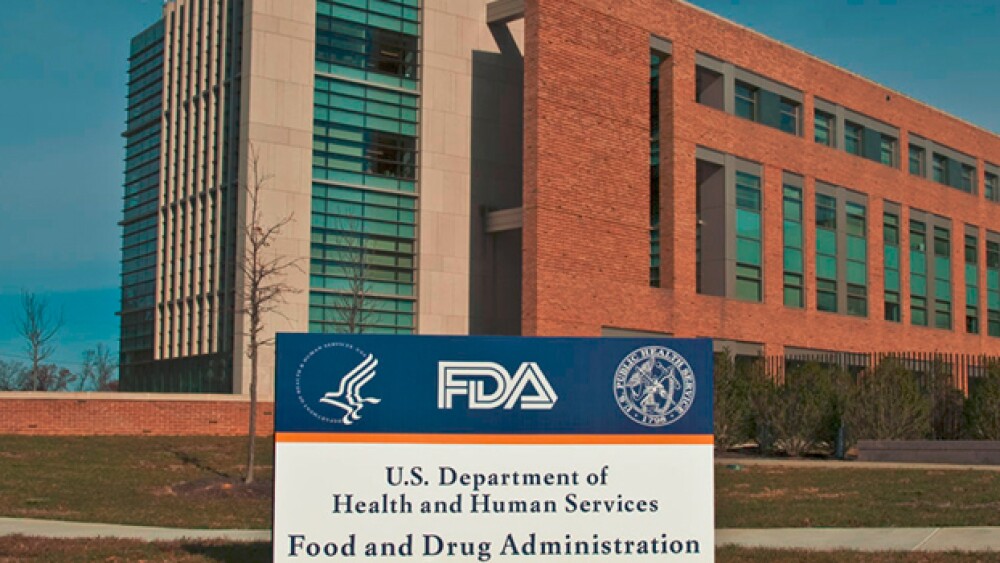SVP-Rapamycin is Selecta’s proprietary, clinical-stage anti-drug antibody (ADA) prevention and immune tolerance technology.
WATERTOWN, Mass., Jan. 02, 2018 (GLOBE NEWSWIRE) -- Selecta Biosciences (Nasdaq:SELB), a clinical-stage biopharmaceutical company focused on unlocking the full potential of biologic therapies by avoiding unwanted immune responses, today announced that an investigational new drug (IND) application has been accepted by the U.S. Food and Drug Administration (FDA) for a combination therapeutic candidate consisting of SVP-Rapamycin and LMB-100 (Selecta’s SEL-403 product candidate) for the treatment of mesothelioma patients.
SVP-Rapamycin is Selecta’s proprietary, clinical-stage anti-drug antibody (ADA) prevention and immune tolerance technology. LMB-100 was in-licensed by Selecta in 2017 from the National Cancer Institute (NCI), part of the National Institutes of Health. It is a recombinant immunotoxin that targets mesothelin, a protein expressed in nearly all mesotheliomas, pancreatic adenocarcinomas and a high percentage of other malignancies, including lung, breast and ovarian cancers. Preclinical data indicate that LMB-100’s mechanism of action – namely the inhibition of protein synthesis – is differentiated and potentially synergistic with other oncology treatments, such as chemotherapy and checkpoint inhibitors1. Selecta and NCI are now planning a Phase 1 trial at NCI under a Cooperative Research and Development Agreement (CRADA).
“Immunotoxins have long been viewed as a drug class that could profoundly impact the treatment paradigm of both solid tumors and blood-borne cancers,” stated Werner Cautreels, Ph.D., President and CEO of Selecta. “Because the toxin is a foreign protein, however, these therapies tend to elicit a strong immune response in the form of ADAs that results in decreased efficacy. With our SEL-403 product candidate, which combines our proprietary SVP-Rapamycin technology with LMB-100, we believe the potential exists to avoid immunogenicity, thereby allowing patients to receive multiple treatment cycles and benefit fully from treatment. We look forward to working with NCI to advance this promising combination therapeutic candidate into the clinic for patients with mesothelioma, which remains among the most difficult to treat cancers.”
NCI is in the process of completing clinical trials of LMB-100 in patients with pancreatic cancer (NCT02810418) and malignant mesothelioma (NCT02798536). In these trials, ADAs to the immunotoxin have prevented most patients from receiving the intended four treatment cycles. While a precursor to LMB-100 was similarly restricted by immunogenicity despite the concurrent use of potent immunosuppressive drugs, tumor regression was observed in the two patients who were able to receive more than two cycles of treatment2.
In 2016, preclinical research conducted by Selecta and NCI demonstrated that the co-administration of SVP-Rapamycin with LMB-100 has the potential to enable extended treatment cycles of LMB-100 and, therefore, enhance its anti-tumor activity.
Under a CRADA, Selecta and NCI are currently planning a dose-escalation Phase 1 trial of SVP-Rapamycin and LMB-100 in patients with malignant pleural or peritoneal mesothelioma who have undergone at least one regimen of chemotherapy. Patients will receive up to four treatment cycles of the combination product. The primary objective of the trial will be to evaluate the safety and tolerability of the combination therapeutic candidate in the study population. Additional objectives include the measurement of ADAs and an objective response rate assessment. Enrollment of up to 18 patients is expected to begin at NCI during the first quarter of 2018.
About Mesothelioma
Mesothelioma is a mesothelin-expressing cancer predominantly affecting the layer of tissue lining the lungs and chest wall. This type of cancer has been linked to asbestos exposure. According to the American Cancer Society, approximately 3,000 people are diagnosed with this disease each year in the United States. The prognosis for mesothelioma is very poor, with an average life expectancy of 12-18 months following diagnosis.
About Selecta Biosciences, Inc.
Selecta Biosciences, Inc. is a clinical-stage biopharmaceutical company that is focused on unlocking the full potential of biologic therapies by avoiding unwanted immune responses. Selecta plans to combine its tolerogenic Synthetic Vaccine Particles (SVP™) to a range of biologics for rare and serious diseases that require new treatment options. The company’s current proprietary pipeline includes SVP-enabled enzyme, oncology and gene therapies. SEL-212, the company’s lead candidate in Phase 2, is being developed to treat severe gout patients and resolve their debilitating symptoms, including flares and gouty arthritis. An investigational new drug (IND) application was recently accepted by the U.S. Food and Drug Administration (FDA) for a combination therapy consisting of SVP-Rapamycin and LMB-100 (Selecta’s SEL-403 product candidate) for the treatment of patients with malignant pleural or peritoneal mesothelioma. Selecta’s two proprietary gene therapy product candidates, SEL-302 and SEL-313, are being developed for rare inborn errors of metabolism and have the potential to enable repeat administration. The use of SVP is also being explored in the development of vaccines and treatments for allergies and autoimmune diseases. Selecta is based in Watertown, Massachusetts. For more information, please visit http://selectabio.com and follow @SelectaBio on Twitter.
Forward-Looking Statements
Any statements in this press release about the future expectations, plans and prospects of Selecta Biosciences, Inc. (“the company”), including without limitation, statements regarding the company’s initiation of a Phase 1 trial for SEL-403 with NCI in Q1 2018, whether immunotoxins could profoundly impact the treatment paradigm of solid tumors and blood-borne cancers, whether SEL-403 has the potential to avoid immunogenicity, whether SEL-403 would permit patients to receive multiple treatment cycles and receive the full benefit of therapy, whether LMB-100 is differentiated and potentially synergistic with other oncology treatments, the potential of SEL-212 to treat severe gout patients and resolve their debilitating symptoms, the company’s ability to unlock the full potential of biologic therapies, the potential applications for products utilizing the SVP platform in areas such as enzyme therapy, gene therapy, oncology therapy, vaccines and treatments for allergies and autoimmune diseases, the potential of the company’s two gene therapy product candidates to enable repeat administration and other statements containing the words “anticipate,” “believe,” “continue,” “could,” “estimate,” “expect,” “hypothesize,” “intend,” “may,” “plan,” “potential,” “predict,” “project,” “should,” “target,” “would,” and similar expressions, constitute forward-looking statements within the meaning of The Private Securities Litigation Reform Act of 1995. Actual results may differ materially from those indicated by such forward-looking statements as a result of various important factors, including, but not limited to, the following: the uncertainties inherent in the initiation, completion and cost of clinical trials including their uncertain outcomes, the unproven approach of the company’s SVP technology, undesirable side effects of the company’s product candidates, its reliance on third parties to manufacture its product candidates and to conduct its clinical trials, the company’s inability to maintain its existing or future collaborations, licenses or contractual relationships, its inability to protect its proprietary technology and intellectual property, potential delays in regulatory approvals, the availability of funding sufficient for its foreseeable and unforeseeable operating expenses and capital expenditure requirements, substantial fluctuation in the price of its common stock, a significant portion of the company’s total outstanding shares have recently become eligible to be sold into the market, and other important factors discussed in the “Risk Factors” section of the company’s Quarterly Report on Form 10-Q filed with the Securities and Exchange Commission, or SEC, on November 7, 2017, and in other filings that the company makes with the SEC. In addition, any forward-looking statements included in this press release represent the company’s views only as of the date of its publication and should not be relied upon as representing its views as of any subsequent date. The company specifically disclaims any obligation to update any forward-looking statements included in this press release.
___________________
1 Leshem, O’Brien, Liu, et. al. Combining Local Immunotoxins Targeting Mesothelin with CTLA-4 Blockade Synergistically Eradicates Murine Cancer by Promoting Anti-Cancer Immunity, Cancer Immunology Research, 2017, 10.1158/2326-6066.
2 Hassan R, Miller AC, Sharon E, Thomas A, Reynolds JC, Ling A, Kreitman RJ, Miettinen MM, Steinberg SM, Fowler DH, Pastan I, Major cancer regressions in mesothelioma after treatment with an anti-mesothelin immunotoxin and immune suppression, Sci Transl Med, 2013 Oct 23, 5(208):208ra147
Contact Information:
Jason Fredette
Selecta Biosciences, Inc.
617-231-8078
jfredette@selectabio.com





